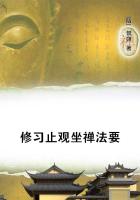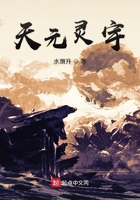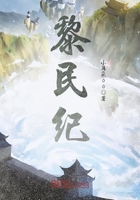The regiment was ordered to South Carolina, and when they were off Cape Hatteras, Colonel Shaw wrote:
The more I think of the passage of the 54th through Boston, the more wonderful it seems to me. just remember our own doubts and fears, and other people's sneering and pitying remarks when we began last winter, and then look at the perfect triumph of last Thursday. We have gone quietly along, forming the first regiment, and at last left Boston amidst greater enthusiasm than has been seen since the first three months' troops left for the war.
Truly, I ought to be thankful for all my happiness and my success in life so far; and if the raising of colored troops prove such a benefit to the country and to the blacks as many people think it will, I shall thank God a thousand times that I was led to take my share in it.
He had, indeed, taken his share in striking one of the most fatal blows to the barbarism of slavery which had yet been struck. The formation of the black regiments did more for the emancipation of the negro and the recognition of his rights, than almost anything else. It was impossible, after that, to say that men who fought and gave their lives for the Union and for their own ******* were not entitled to be free. The acceptance of the command of a black regiment by such men as Shaw and his fellow-officers was the great act which made all this possible.
After reaching South Carolina, Colonel Shaw was with his regiment at Port Royal and on the islands of that coast for rather more than a month, and on July 18 he was offered the post of honor in an assault upon Fort Wagner, which was ordered for that night. He had proved that the negroes could be made into a good regiment, and now the second great opportunity had come, to prove their fighting quality. He wanted to demonstrate that his men could fight side by side with white soldiers, and show to somebody beside their officers what stuff they were made of. He, therefore, accepted the dangerous duty with gladness. Late in the day the troops were marched across Folly and Morris islands and formed in line of battle within six hundred yards of Fort Wagner.
At half-past seven the order for the charge was given, and the regiment advanced. When they were within a hundred yards of the fort, the rebel fire opened with such effect that the first battalion hesitated and wavered. Colonel Shaw sprang to the front, and waving his sword, shouted: "Forward, 54th!" With another cheer, the men rushed through the ditch, and gained a parapet on the right. Colonel Shaw was one of the first to scale the walls. As he stood erect, a noble figure, ordering his men forward and shouting to them to press on, he was shot dead and fell into the fort. After his fall, the assault was repulsed.
General Haywood, commanding the rebel forces, said to a Union prisoner: "I knew Colonel Shaw before the war, and then esteemed him. Had he been in command of white troops, I should have given him an honorable burial. As it is, I shall bury him in the common trench, with the negroes that fell with him." He little knew that he was giving the dead soldier the most honorable burial that man could have devised, for the savage words told unmistakably that Robert Shaw's work had not been in vain. The order to bury him with his "niggers," which ran through the North and remained fixed in our history, showed, in a flash of light, the hideous barbarism of a system which made such things and such feelings possible. It also showed that slavery was wounded to the death, and that the brutal phrase was the angry snarl of a dying tiger.
Such words rank with the action of Charles Stuart, when he had the bones of Oliver Cromwell and Robert Blake torn from their graves and flung on dunghills or fixed on Temple Bar.
Robert Shaw fell in battle at the head of his men, giving his life to his country, as did many another gallant man during those four years of conflict. But he did something more than this. He faced prejudice and hostility in the North, and confronted the blind and savage rage of the South, in order to demonstrate to the world that the human beings who were held in bondage could vindicate their right to ******* by fighting and dying for it. He helped mightily in the great task of destroying human slavery, and in uplifting an oppressed and down-trodden race. He brought to this work the qualities which were particularly essential for his success. He had all that birth and wealth, breeding, education, and tradition could give. He offered up, in full measure, all those things which make life most worth living. He was handsome and beloved. He had a serene and beautiful nature, and was at once brave and ******. Above all things, he was fitted for the task which he performed and for the sacrifice which he made. The call of the country and of the time came to him, and he was ready. He has been singled out for remembrance from among many others of equal sacrifice, and a monument is rising to his memory in Boston, because it was his peculiar fortune to live and die for a great principle of humanity, and to stand forth as an ideal and beautiful figure in a struggle where the onward march of civilization was at stake. He lived in those few and crowded years a heroic life, and he met a heroic death. When he fell, sword in hand, on the parapet of Wagner, leading his black troops in a desperate assault, we can only say of him as Bunyan said of "Valiant for Truth": "And then he passed over, and all the trumpets sounded for him on the other side."CHARLES RUSSELL LOWELLWut's wurds to them whose faith an' truth On war's red techstone rang true metal, Who ventered life an' love an, youth For the gret prize o' death in battle?
To him who, deadly hurt, agen Flashed on afore the charge's thunder, Tippin' with fire the bolt of men Thet rived the rebel line asunder?
--Lowell.















